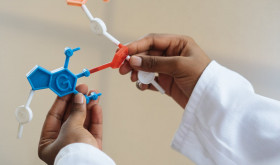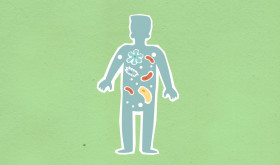
Have you ever spotted bright-red or black blood in the toilet bowl, toilet paper, or your stools after using the bathroom? You need to pay attention if this happens more than twice in the short term. It could be a cause of severe disease, i.e., rectal bleeding.
Experiencing rectal bleeding can be one of the most unpleasant and disturbing symptoms you can undergo. It can be caused by various conditions, and it is essential to seek medical attention as soon as possible. It would be helpful if you did not wait for symptoms to disappear because they can deteriorate over time and lead to much more serious health risks.
The most common causes of rectal bleeding are haemorrhoids that are swollen veins in the anus, anal fissures (small tears in anus lining). Other causes include hard stools and anal infection that may present as itching, swelling, discharge, and pain during passing stool or just after passing stool. A benign tumour can also cause rectal uterine bleeding, affecting the bowel.
Common Causes Of Rectal Bleeding
There could be several causes of rectal bleeding, and these range from mild to severe. Here are some conditions that are associated with this health problem:
Anal fissures: Small tears grown in the anus lining that lead to pain and bleeding while passing stools. It occurs because of constipation or childbirth.
Haemorrhoids: These are masses of tissues made of blood vessels & muscle fibres and can occur internally and externally to the anus.
Constipation: This major problem can lead to other causes of rectal bleeding.
Anal cancer or colon cancer: Tumours need blood vessels to expand, and the vessels in the anus are fragile and can tear, which leads to rectal bleeding.
Not limited to this, there are several other reasons that can also lead to this problem like ulcers, angiodysplasia, Inflammatory bowel disease (IBD), infection, Diverticular disease, etc.
When Should I Get Doctor’s Help?
Rectal bleeding may stop without treatment due to mild causes and if a person follows a healthy lifestyle. If the disease is caused by severe symptoms like cancer, or piles, you need to get medical help at the earliest.
You should seek help from a doctor whenever you notice any symptoms. Some of them include bleeding from the rectum, pain in the rectum, abdominal pain or cramps, severe anal pain, severe nausea, or vomiting.
If you are facing any of these symptoms, you can schedule an appointment to see a doctor, get it diagnosed and get the necessary medical help for your condition. Delay in this can lead to serious conditions, and it is not advised to wait for rectal bleeding to go away on its own. Getting the best treatment at the right time can also help eliminate chronic diseases completely.
Endnote
Colorectal Health is the one-stop solution for all colorectal and anal-related problems. Book an appointment to get a consultation from Dr Shahnawaz Rasheed, an experienced General and Colorectal Surgeon with extensive UK and international practice. You can contact at 0207 486 1008 for any queries or doubts.















